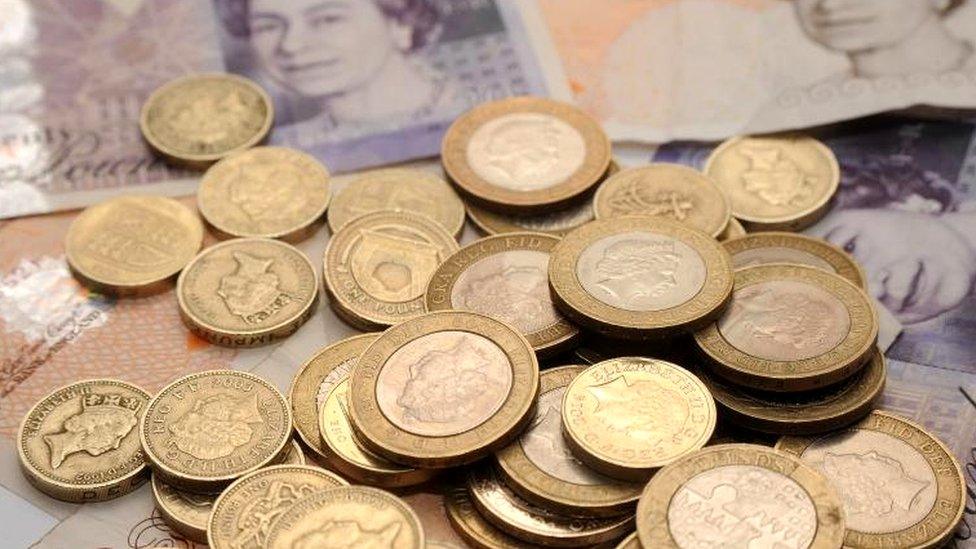The currency markets and the referendum
- Published

At the time of writing, the value of the pound is back above the level it was before David Cameron announced the date of the referendum. From a market perspective, it's as if the last four months of campaigning never happened.
What are we to read into this and currency movements over the next few days?
In short, be wary of reading too much into the market swings we will almost inevitably see.
It is true that the value of the pound is perhaps the most sensitive of all financial markets to the outcome of the referendum.
The Bank of England governor and a significant majority of economists and traders think that the value of the pound would fall in the event the UK left the EU.
It's not clear how long that would last and whether it would be an entirely bad thing but markets don't like uncertainty and for a while that's what we would have.
There has, therefore, been correlation between poll results and moves in sterling. As the Leave camp's polling drew level then nosed ahead in some polls last week, the value of sterling fell. As Leave's momentum has stalled a bit in the last few days, sterling has risen.
That has led to many people thinking that currency movements on polling day will be a good indicator of which way the voting is going.
I would warn against that for three reasons.
First, given the movement towards Leave in the polls since January, sterling shouldn't be this strong. That means either that markets are overly complacent about the UK staying in - in which case they are in for a big shock - or that the experts are wrong about the damage a Leave vote would do to the pound.
The second is that financial markets often operate according to a curious pattern known as "Buy the rumour, sell the news".
It works like this. Company A has results coming out next week. There is a rumour that it's going to report higher profits than previously expected, shares rise in the days leading up to the announcement and the rumours prove true. Does the share price rise? No. It falls as those who bought now sell to pocket their profit. That means that it's perfectly possible for sterling to fall even if Remain wins as everyone who bought last week, sells on Thursday and Friday and takes their profit.
Third, is that some of the people buying and selling are not people at all. Much of the trading in financial markets is done by computers following trading programmes. These can all start heading in the same direction at the same time leading to markets going up or down faster and further than the fundamental facts might warrant.
There have been reports that big investors will be paying for their own exit polls to steal a march on others. Some have wondered that if we see the currency rising or falling it's because some people are "in the know" and we can infer a result from market movements. Again, we should be careful with this. Exit polls - to the extent they work - work in part using comparable information from constituencies from previous general elections. We haven't had a poll like this for over 40 years so it would be very difficult to be certain your poll was giving you a sample you could confidently extrapolate.
In conclusion, the markets are very jumpy, the polls are evenly split, there will be volatility for sure - be wary of reading too much into it on the day.